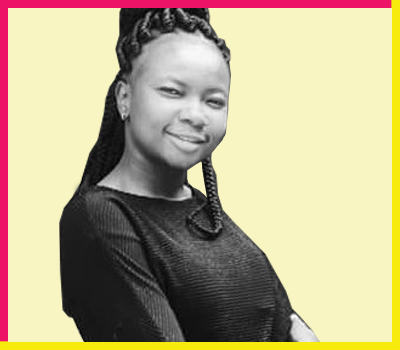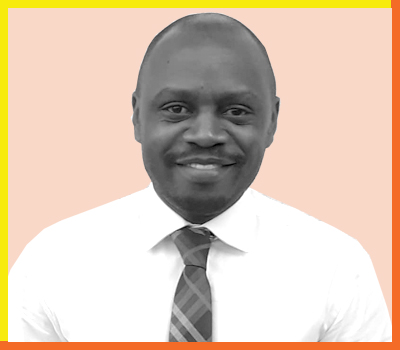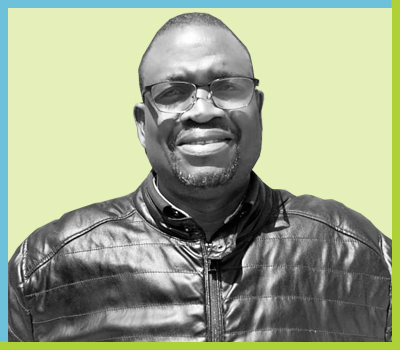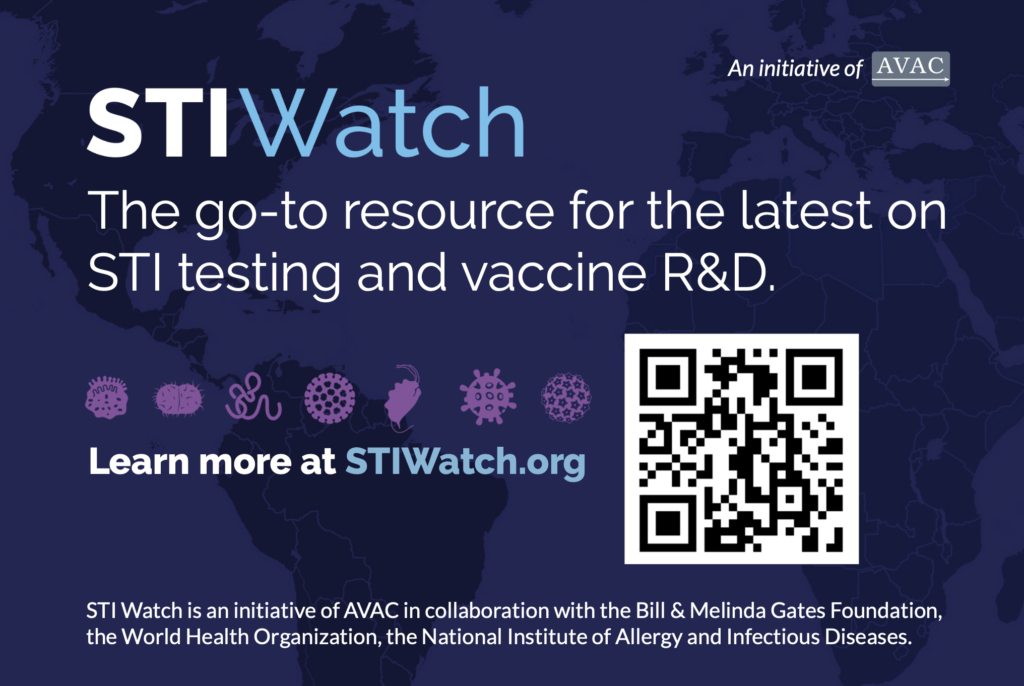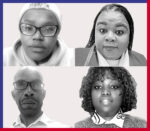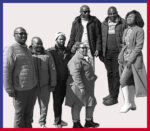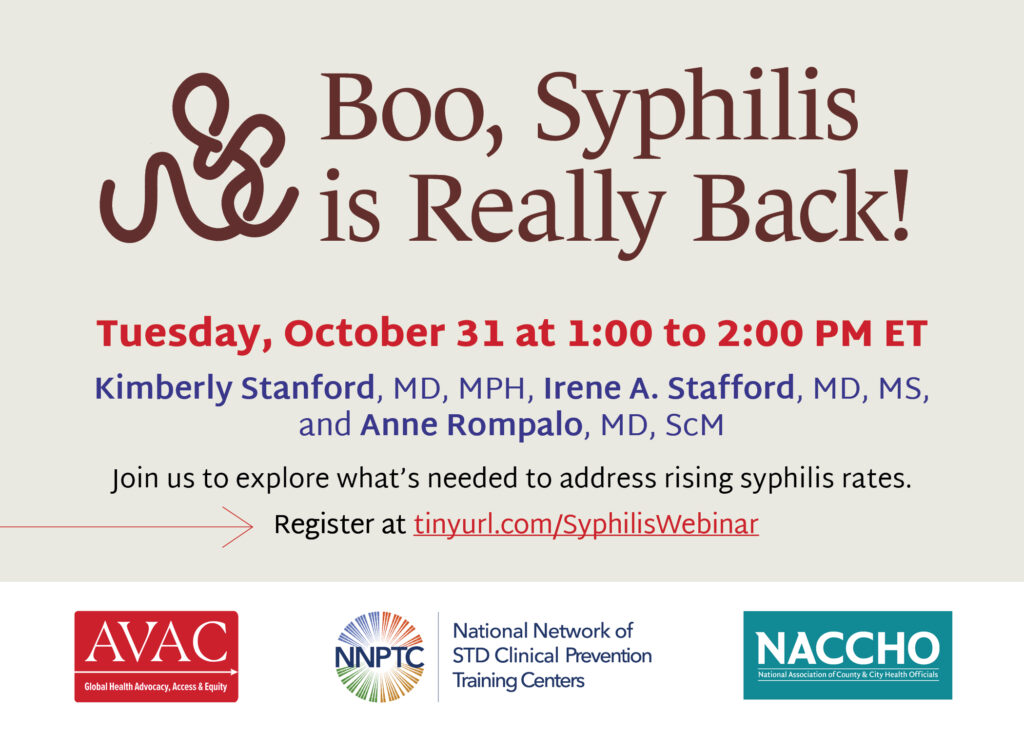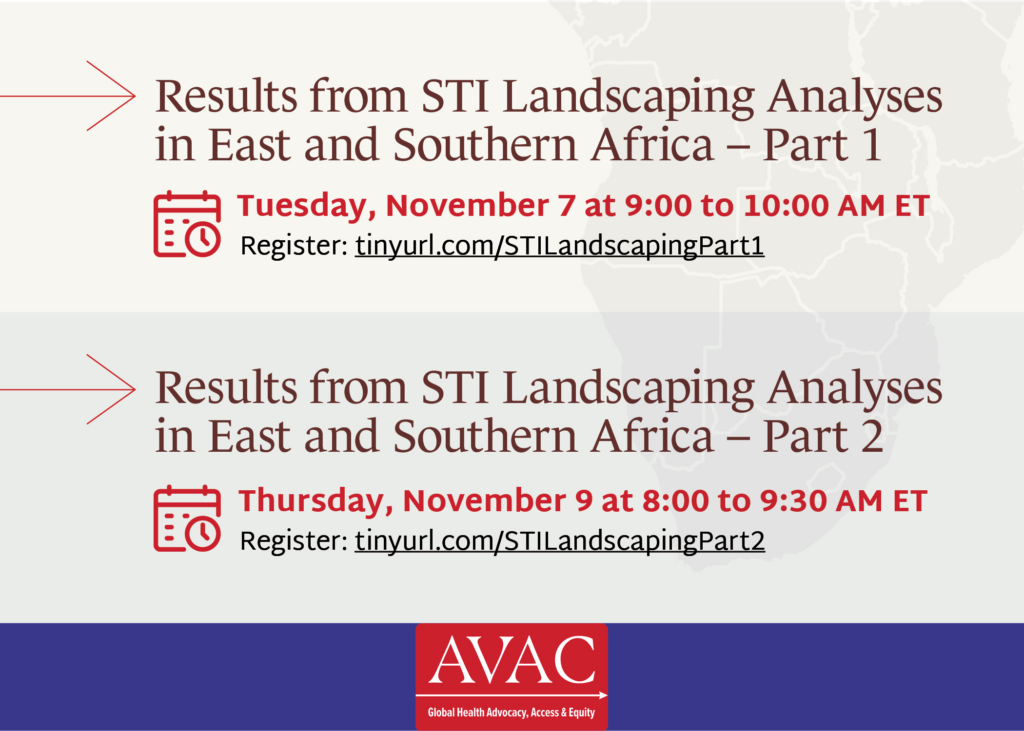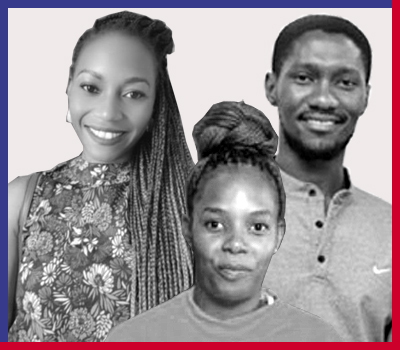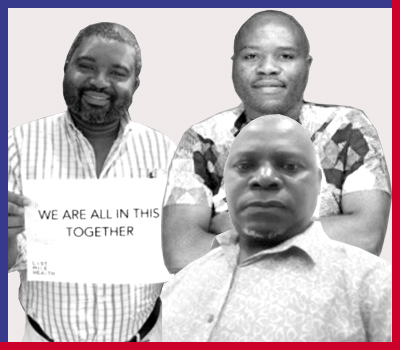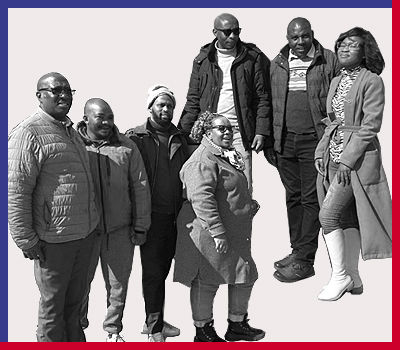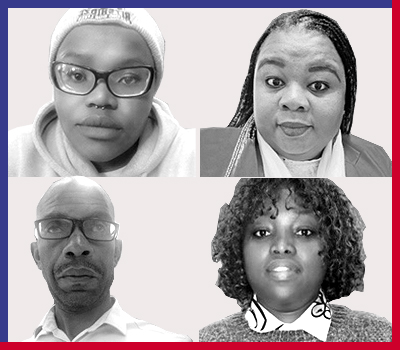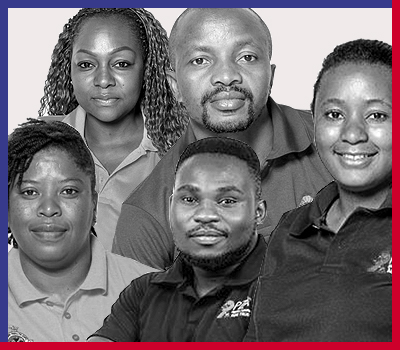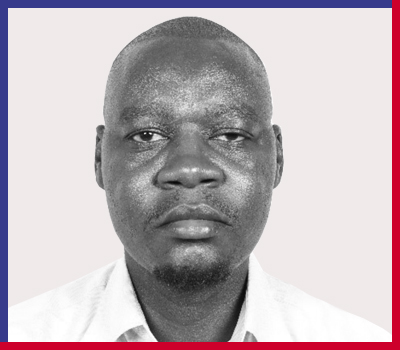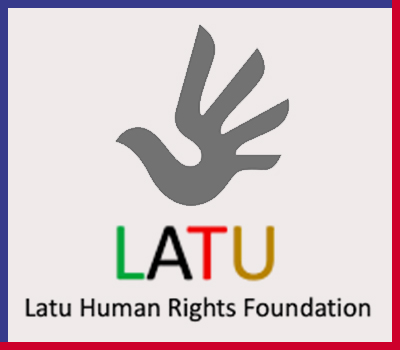The October and November calendar of webinars offers a wealth of conversations on cross-cutting issues facing advocates who care about global health equity and HIV prevention. From discussions on PEPFAR reauthorization, to an evolving picture on sexually transmitted infections, to case studies on new interventions at the intersection of HIV prevention and family planning, to research on barriers to care and health priorities for Black gay men in the US; it is a season for advocates to engage in shaping an agenda for 2024.
Scroll down for details and see you online!
October 26, Practicality over Panic: What happens if PEPFAR isn’t reauthorized?
At 11:00 AM ET: Join the Global AIDS Partnership (GAPP) for a candid assessment of the current landscape around PEPFAR, including the implications for work on the ground. It is intended to redirect anxiety into action and provide a reality check: PEPFAR is not going anywhere any time soon.
October 31, Boo, Syphilis is Really Back!
At 1:00 PM ET: Syphilis rates have increased drastically in recent years. Learn how others are addressing these rising rates and the techniques clinicians are using to detect, treat, and prevent infections. Co-hosted with NACCHO and NNPTC.
November 7, Results from STI Landscaping Analyses in East and Southern Africa—Part 1
At 9:00 AM ET: Hear results from STI landscaping projects conducted by AVAC partners in seven different East and Southern African countries that explored needs for STI vaccines and diagnostics.
November 9, Results from STI Landscaping Analyses in East and Southern Africa—Part 2
At 8:00 AM ET: Hear results from STI landscaping projects conducted by AVAC partners in seven different East and Southern African countries that explored needs for STI vaccines and diagnostics.
November 9, Pioneering Self-care Solutions to Drive Access to HIV Prevention and Family Planning
At 8:00 AM ET: This session will amplify lessons from five self-care interventions in family planning and HIV prevention — with case studies on specific interventions— DMPA-SC; the Caya Diaphragm; the Dual Prevention Pill; HIV self-testing; and Triggerise; an mHealth platform. Learn more about how these successful self-care strategies can be applied across diverse settings and join the discussion on the future of self-care in sexual and reproductive health. This session is part of the 2023 Self-Care Learning and Discovery Series. Learn more here.
November 15, HPTN 096: Building Equity Through Advocacy – An Integrated, Status-Neutral Approach for Ending the Epidemic Among Black Gay Men in the South
At 10:00am ET: Join The Choice Agenda and partners for a fascinating discussion about a novel, much-needed HIV prevention research study – HPTN 096. Currently in the field, the study addresses social, structural, institutional, and behavioral barriers to HIV prevention and care. Visit the study website here. See the speakers list here. Co-sponsored by PrEP in Black America and Federal AIDS Policy Partnership Research Working Group
